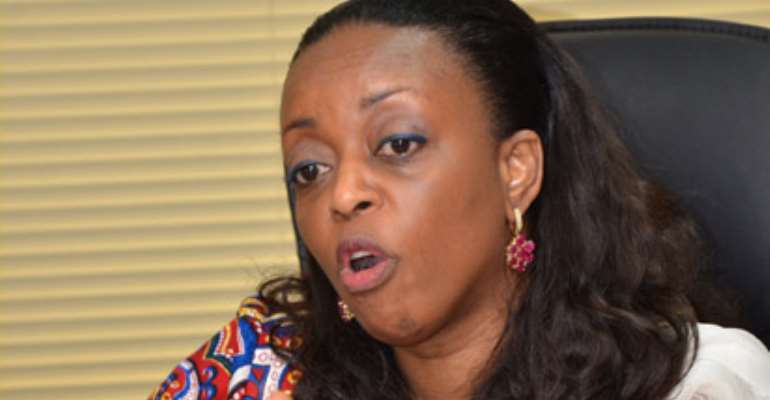CRISIS IN OIL SECTOR & RECURRING SCARCITY OF FUEL

The General Secretary of NUPENG, Mr. Elijah Okougbo, explained that 'the strike had to do with the disagreement on the loan obtained by Jetty and Petroleum Tank Farm Owners Association of Nigeria from some commercial banks to increase the volume of fuel importation to meet the increasing demand in the country'.
Okougbo went on: ' NUPENG is demanding the implementation of a section of an agreement reached with the Federal Government to allow JEPTFON, a subsidiary association, to pay back the loan in 15 years with three per cent interest.
Ministry of Petroleum, Allison-Madueke
The union was compelled to issue the ultimatum as banks were mounting serious pressure on JEPTFON to repay the loan in spite of the agreement reached with government. Member-associations of the union had been compelled to embark on reduction of their workforce in the drive to repay the outstanding loan.'
Subsidy removal/new fuel price regime: The crisis in oil sector, which paved the way for recurring issues of fuel scarcity in the country, has taken a new dimension as long queues have resurfaced in service stations across the country.
The problem began in January 1, 2012 following a sudden pronouncement by the Federal Government on the removal of fuel subsidy which pushed the price up from N65 to N141 per litre. While government insisted that payment of subsidy already estimated at over N3.5trillion last year constituted a drain on the economy and must be discontinued, the Nigerian Labour Congress (NLC) and most Nigerians said the timing was wrong, especially in the first quarter when the economy was just picking up.
The nationwide strike/revenue losses to the economy: The barrage of protests against subsidy removal following the industrial action called upon by NLC brought yet another set back as the nation's economy was crippled for over a week. While government incurred losses estimated at over N300billion, operators of Small and Medium Enterprises (SMEs) recorded losses worth millions of naira during the period of the strike.
Increase in price of fuel from N65 to N97 per litre/Inflation: After exhaustive deliberations and debates between NLC and government, the pump price was revised from N141 to N97 per litre. The new fuel price regime brought about an inflationary situation in the economy as the cost of living increased with consumers purchasing few consumable items with large sums. Aside from prices of goods and services, the cost of transportation to various locations increased by over 25 per cent.
Fuel Subsidy probe: Immediately the protests ended, the House of Representatives' ad hoc committee on the management of petrol subsidy fund commenced a public hearing on the subsidy allocation with a view to unravelling the alleged sharp practices surrounding the subsidy funds.
The ministers of finance and petroleum resources, top managers of the Petroleum Products Pricing and Regulatory Agency (PPPRA), top officials of Nigerian National Petroleum Corporation (NNPC), Accountant-General of the Federation, Nigeria Customs Service (NCS) and about 140 oil firms that participated in the Petroleum Support Fund appeared before the committee to explain their roles in the scheme. The public hearing which lasted for about three weeks ended on February 9.
The recurring scarcity of product since January 2012:
Our investigations revealed that since the new fuel price regime began, it has been one form of fuel scarcity after another. For instance, while government approved pump price of petrol is N97 per litre, some filling stations in Lagos and Ogun states are selling fuel at the rate of N100 per litre.
Three weeks ago when Sunday Business visited some service outlets in Cross River and Akwa Ibom states, fuel was sold for N140 per litre in some stations. At NNPC mega station, along Highway area close to police Zone 6 headquarters where fuel was sold at N97 per litre, long queues built from the station premises to the major road. In the Federal Capital Territory (FCT) fuel queues in service outlets persist.
The position of Labour:
NLC has alleged that the current fuel scarcity in the country is artificial and also an attempt to blackmail Nigerians into accepting higher fuel prices and pressurise the National Assembly to discontinue the probe into the alleged fraud in the industry.
The Acting secretary of NLC, Owei Lakemfa, was quoted as saying, 'Labour's stance on fuel scarcity came on a day the Vice-Chairman, Senate Committee on National Planning, Economic Affairs and Poverty Alleviation, Senator Olufemi Lanlehin, said that the probe of fuel subsidy will reveal shocking underground dealings in the oil sector.
We assure the National Assembly that Nigerians are solidly behind its probe into the age-long theft of our oil wealth and the fleecing of the country through the inflation of the subsidy on fuel. The future of our country lies in our ability, determination and the political will to tackle the endemic corruption that has become cancerous and is threatening our very existence.'
Stakeholder's perspective
National Secretary, Independent Petroleum Marketers Association of Nigeria (IPMAN), Mr. Mike Osatuyi, has in the meantime allayed fears of fuel scarcity in the country. 'The major and independent oil marketers in Nigeria are trying to bring in sufficient petrol cargoes to ensure that there is no prolonged scarcity of fuel in the country. What we experienced was caused by uncertainties and efforts are being made to ensure importation of more products into the country', he stressed.
